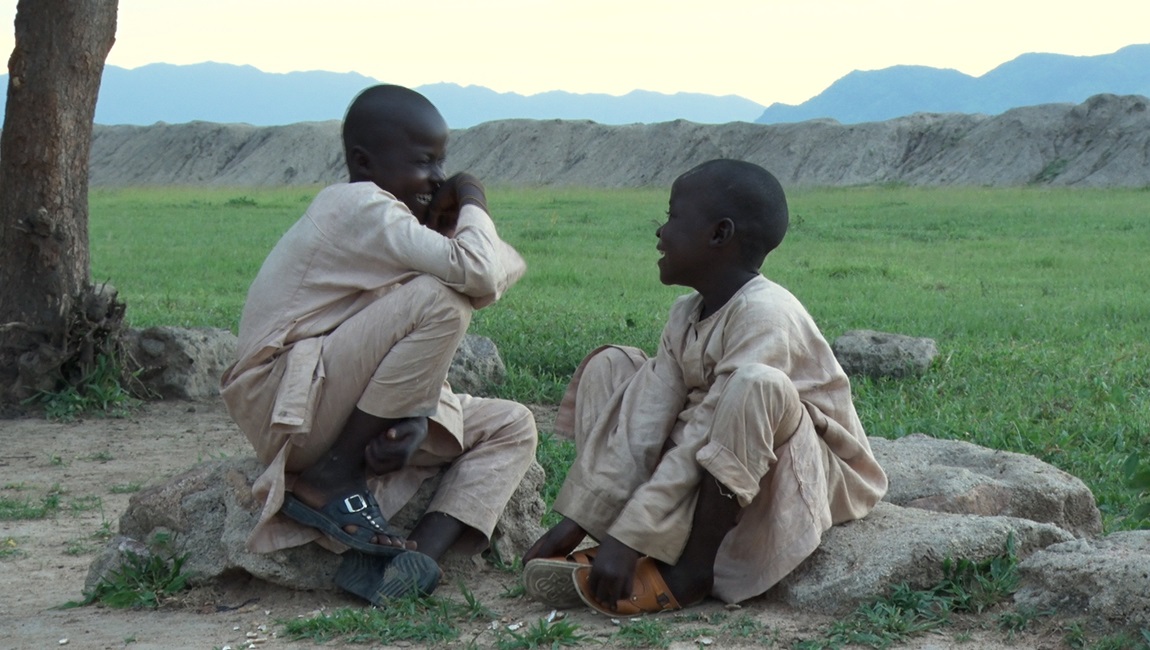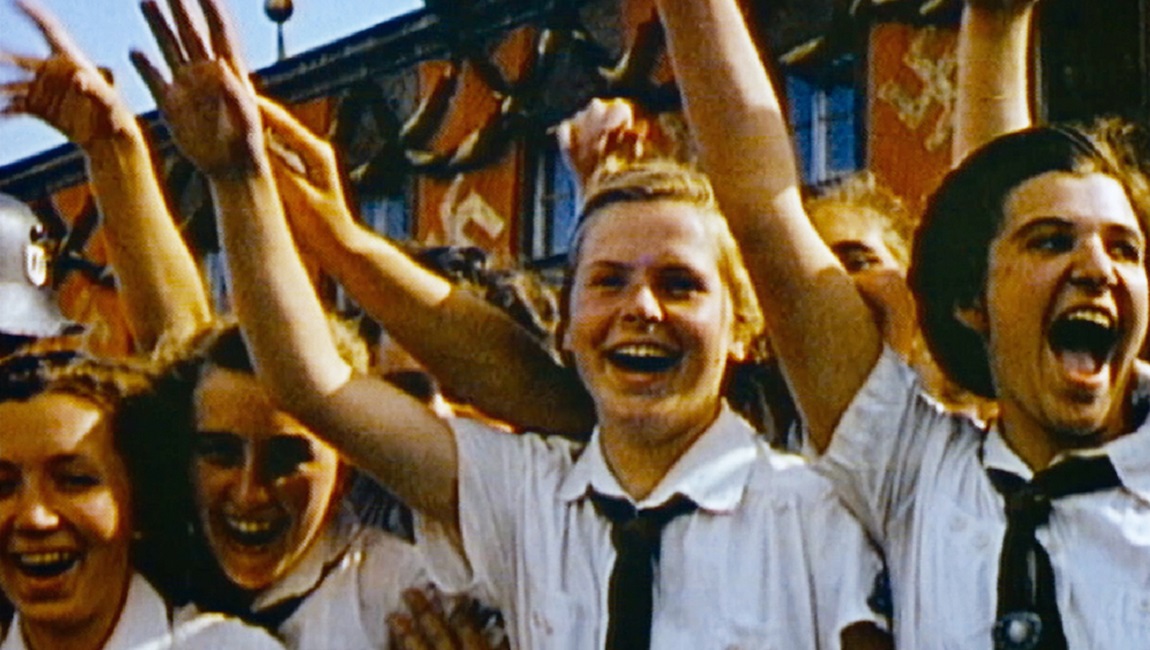The documentarian’s camera — more often than not — observes, investigates, and deliberates in media res. The past, then, is either recounted through a detached academicism that turns stories into statistics or evoked through limited perspectives that aren’t wholly informative but are, in their supply of personalized information, at least memorably so.
Cyrielle Raingou’s first feature-length documentary, The Spectre of Boko Haram, is a sobering portrait of terror and warfare normalized in the Kolofata village on the Nigerian-Cameroonian border, told through the perspective of three children living there. It doesn’t rely on introductory and closing titles to inform us about the specifics of the war. Instead, Raingou reveals the enduring effects of Boko Haram — a militant Islamic terrorist organization — to us in the same way the kids know about them: intimately but hazily. We follow Falta Souleymane, a young and impressionable local girl who lost her father and grandfather to a suicide bombing committed by two men (presumably of Boko Haram) because they believed Falta’s father wanted to steal their chicken. In parallel, the film focuses on two brothers, Ibrahim and Mohammed Alilou. Separated from their parents by Boko Haram, the brothers escaped their terrorist camps, only to be relocated by Cameroonian soldiers to Kolofata. Their story, contrary to Falta’s strictly disciplined life, is of perpetual movement. Together, however, they both seem to communicate the pervasive feeling of dislocation, confusion, and tension caused by the conflict between Boko Haram and the Cameroonian military.
Raingou’s formalism materializes this distressing feeling. Throughout the film, her direction collapses any discernible difference between the quotidian and the specter of impending violence. Falta’s retelling of what happened to her father over a bonfire is framed to a foreground of erupting flames covering her small face; the echo of gunfire is consistent but hardly disruptive for any of the locals; the view outside a noisy classroom is that of a lurking soldier, seemingly ready to fire; the same classroom hosts a discussion about making scientific models devolve into creating weapons of mass destruction. The teacher, then, casually tells all his students: “Forget objects of war. Objects of dispute. Let’s make something we see in our daily lives.” The Spectre of Boko Haram repeatedly shows that the students are doing just that. Innocence isn’t being lost here; it already has been. And that helpless feeling, more than any well-researched, statistical retelling of Kolofata and the terrors of Boko Haram’s warfare with the Cameroonian army, lingers.
Published as part of DOC NYC 2023 — Dispatch 1.







